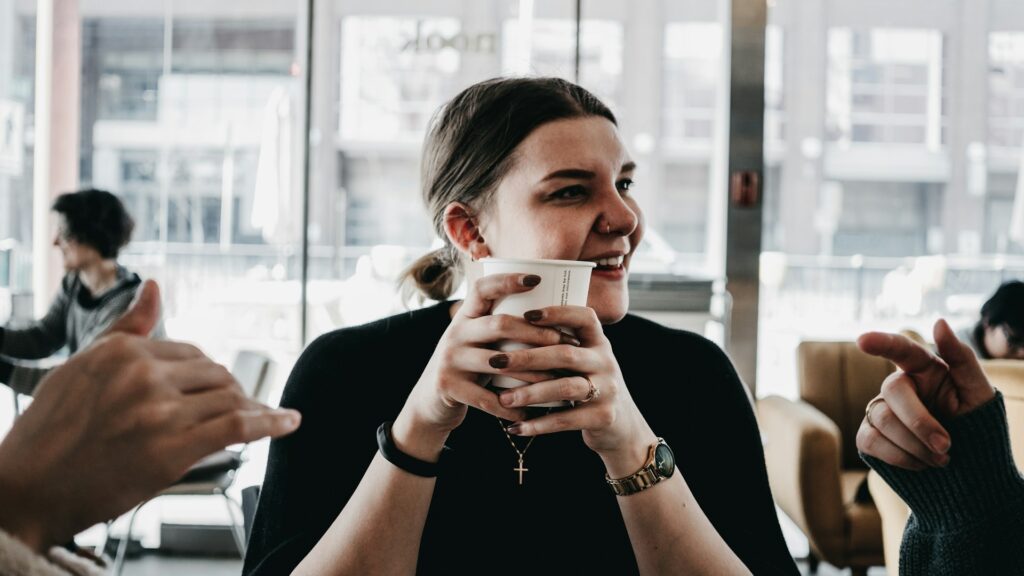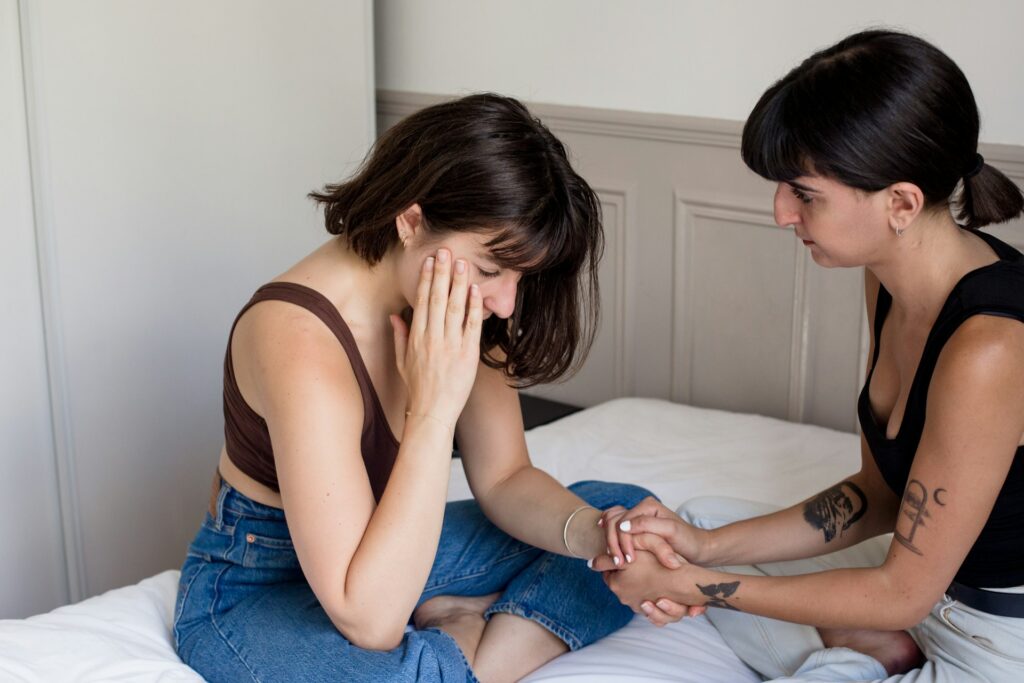Social situations can be overwhelming, especially when anxiety starts to creep in.

Whether it’s a work event, a family gathering, or even a simple meet-up with friends, it’s easy to get caught up in your head and spiral into overthinking. The ‘what ifs’ start flooding in: What if I say something silly? What if they don’t like me? What if I mess up? It can feel like there’s a constant stream of worry running in the background, making even the simplest social situation feel like a big hurdle.
But it doesn’t have to be that way. With a few strategies, you can manage your anxiety and take the pressure off yourself in social situations. Here are some simple enough ways to handle social anxiety without getting caught in the overthinking trap.
Flip your focus onto other people.

When anxiety strikes, it’s easy to turn the focus inward, thinking about how you’re coming across or whether you’re saying the right thing. But that only feeds the anxiety. Instead, try shifting your focus to the people around you. Ask them about their day, their interests, or what they’re up to. This takes the pressure off you and allows you to connect in a more natural way. Plus, most people enjoy talking about themselves, so you’ll have plenty to listen to.
Keep your expectations realistic.

One of the reasons we get anxious in social situations is that we set ourselves up for perfection. We think we need to be entertaining, funny, or always saying the right thing. But that’s an unrealistic standard to hold yourself to. Remember, you don’t need to be perfect. Socialising is about connection, not performance. Lowering your expectations allows you to relax and enjoy the moment instead of stressing about how you’re coming across.
Take a breather when needed.

Sometimes, social situations can get overwhelming, and that’s okay. If you feel your anxiety rising, give yourself permission to step away for a minute. Whether it’s going to the bathroom, stepping outside for a breath of fresh air, or just taking a quiet moment in the corner, taking a break can help you reset and refocus. It’s perfectly fine to take some time to breathe and regroup when you need to.
Learn some grounding techniques.

When anxiety starts to take over, it can feel like you’re floating outside of your body, detached from the present moment. Grounding techniques are a great way to bring yourself back to the here and now. Try the 5-4-3-2-1 method: name five things you can see, four things you can touch, three things you can hear, two things you can smell, and one thing you can taste. It’s a simple exercise, for sure, but it really can help you feel more grounded and less overwhelmed by your thoughts.
Accept that discomfort is part of the process.

It’s easy to think that socialising should feel easy and natural, but that’s not always the case, especially when anxiety is involved. Sometimes, you might feel a little uncomfortable or out of place, and that’s normal. The more you accept that discomfort is part of social situations, the less power it has over you. You don’t need to get rid of the discomfort; just acknowledge it and carry on.
Avoid mind-reading

One of the quickest ways to ramp up anxiety is to start mind-reading. You might start imagining what people are thinking about you or over-analysing their reactions. But the truth is, you can’t read minds. Chances are, people are not thinking about you as much as you think they are. Remind yourself that most people are too focused on their own thoughts and feelings to be overly concerned with yours.
Stick to familiar environments when possible.

If you know that a certain social setting makes you more anxious, try to stick to environments that feel more familiar and comfortable. Maybe that means meeting up with friends at your favourite café instead of trying something new, or attending a smaller event rather than a large gathering. Familiar environments can help reduce the level of anxiety and make it easier to engage in conversation.
Don’t be afraid to be yourself.

It’s tempting to try to act in a way that you think will make you more likeable or less anxious, but the best way to connect with people is to be authentic. If you try too hard to be someone you’re not, it will only increase your anxiety. People appreciate honesty and authenticity, so be yourself, even if that means admitting you’re feeling a little nervous. More often than not, people will appreciate your openness.
Focus on the present moment.

Anxiety thrives in the future. When you’re focused on what might happen, you’re setting yourself up for worry. Instead, try to focus on the present moment. Pay attention to the conversation, the people around you, and your surroundings. Engaging in the here and now can help quiet those anxious thoughts and keep you grounded in the experience instead of spiralling into “what if” scenarios.
Use positive affirmations.

Positive affirmations might sound a bit cheesy, but they can be a great way to quiet the negative chatter in your mind. Before entering a social situation, tell yourself things like, “I’m capable of handling this,” “I’m worthy of connection,” or “I don’t have to be perfect.” These simple phrases can help boost your confidence and reduce anxiety. Over time, repeating these affirmations can make them feel more natural and less like a struggle.
Set small goals for yourself.

Rather than overwhelming yourself with the idea of “enjoying” a social event, set small, manageable goals. For example, you might aim to have one good conversation or introduce yourself to at least two new people. Breaking the event down into smaller, achievable steps can make it feel less daunting and give you a sense of accomplishment when you’ve met your goals.
Avoid the need for constant reassurance.

It’s tempting to seek reassurance when you’re feeling anxious, but asking over and over again if everything’s okay can feed into your anxiety. Trust that you’re doing fine. You don’t need to constantly check in with other people about how you’re coming across. The less you rely on external validation, the more confidence you’ll build in your own ability to manage social situations.
Remember, socialising is a skill.

Just like any other skill, socialising takes practice. The more you put yourself in social situations, the easier it will become. At first, it might feel uncomfortable or overwhelming, but with time, you’ll start to feel more confident. Be patient with yourself and recognise that improvement comes gradually. The more you face your anxiety in social situations, the less power it will have over time.


